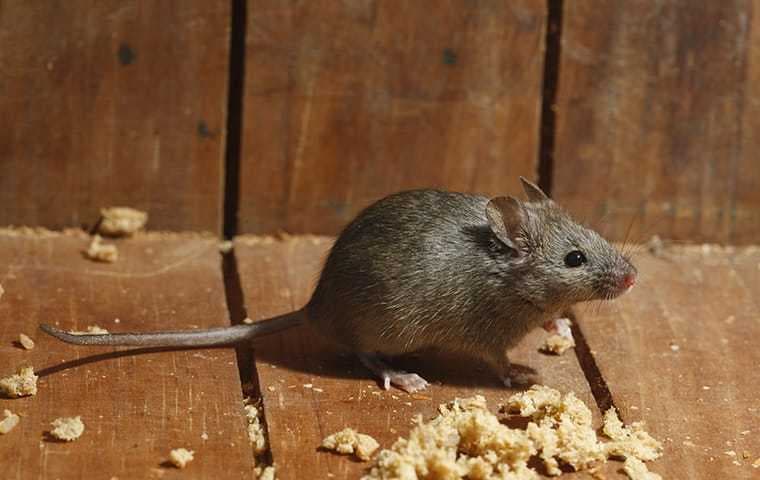Salt Lake City is home to stunning landscapes and vibrant culture. However, the very factors that make it a unique place to live also bring in a concern shared by many homeowners: rodent infestations. These concerns aren't just limited to those who have encountered rodents in their homes; even the most fortunate who haven't faced such an issue understand that it is always better to be informed.
That's exactly what we aim to do in this comprehensive guide to rodent control in Salt Lake City. By the end, you'll have a wealth of knowledge on identifying different rodent species, understanding their potential threats, and taking the proper measures to ensure they remain outside your home. Welcome to your roadmap to a secure and rodent-free home!
Common Rodent Species: Identify Rats, Mice, and Other Intruders

What types of rodents are common in Salt Lake City? How can homeowners identify different rodent species? These are the fundamental questions we will address in this section, helping you familiarize yourself with the kinds of rodents you might encounter in and around your Salt Lake City property.
In Salt Lake City, several types of rodents can make an appearance, including but not limited to:
-
Roof Rats: These rodents are generally dark brown to black in color and prefer to inhabit higher places such as attics. Identifying them early can often involve hearing scratching sounds in the ceilings at night.
-
Norway Rats: Norway rats, also known as brown rats, are large rodents that are typically brown or gray in color and are known for their adaptive behavior and ability to thrive in urban environments.
-
House Mice: Smaller than rats, these mice are grayish in color. They are known to sneak into homes looking for food, often leaving behind droppings as telltale signs of their presence.
So, why is it important to identify the rodent species in your home? Well, an effective strategy for rodent control starts with identifying the enemy. Knowing exactly what you're dealing with can help in setting up rodent prevention methods and treatment options to safeguard your home in the most efficient way possible. Plus, with the correct identification, you can avoid unnecessary scares and deal with the issue calmly and methodically.
The Rodent Menace: Understanding the Threat of Unwanted Visitors
When homeowners in Salt Lake City encounter rodents, the immediate questions that come to mind often include, "What health risks do rodents carry?" and "What kind of damage can rodents inflict on a property?" In this section, we intend to address these questions, shedding light on the challenges presented by common rodents and the necessary actions to take.
First and foremost, rodents can be carriers of various diseases that can have a major impact on people. Some of the illnesses they can transmit include:
-
Hantavirus: Primarily spread by deer mice, this virus can be spread through contact with rodent urine, droppings, or saliva.
-
Salmonella: Often spread through consuming food or water contaminated with rodent feces, it can lead to symptoms like diarrhea, fever, and abdominal cramps.
-
Leptospirosis: This bacterial disease can be spread through contact with water or soil contaminated by the urine of infected rodents.
In addition to health risks, rodents can also cause considerable property damage. Their constant need to gnaw can lead to:
-
Structural damage: Rodents can chew through a variety of materials, including wood and plastic, compromising the integrity of a building's structure over time.
-
Electrical issues: Rodents have been known to chew through wires, potentially leading to power outages or, in severe cases, electrical fires.
-
Contamination of food sources: With rodents around, no food source is safe. They can easily find their way into pantries, contaminating food with their droppings and urine.
An obvious question to ask at this point is, "How can one determine the degree of risk posed by a rodent infestation?"
The key to this lies in vigilant observation. Let's dive deeper into the signs one should be attentive to when it comes to identifying rodent presence:
-
Droppings: Rodents leave behind droppings which can be found in hidden corners, along paths they frequent, or near their feeding areas. The shape and size of the droppings can often help in identifying the type of rodent – for instance, mouse droppings are typically small and pointed, while rat droppings are larger with rounded ends.
-
Gnaw marks: Different rodents have different gnawing habits. Pay attention to the gnaw marks they might leave on food packages, wooden structures, or wires. Understanding the specific gnawing patterns can help in distinguishing between the species.
-
Sounds: Rodents often make scratching, scurrying, or gnawing sounds, especially during the night. Being attentive to the specific sounds and locations can sometimes give a hint about the species you are dealing with.
-
Tracks: Rodents leave tracks on dusty surfaces, and identifying these can be a significant clue. You might see tail drag marks, footprints, or even smear marks left by their oily fur.
-
Nests: Rodents build nests using a variety of materials such as paper, cloth, or insulation. Finding a nest can not only alert you to their presence but potentially indicate the size of the infestation depending on the nest size.
-
Odors: Different kinds of rodents have distinctive smells. While it might be challenging to differentiate between the smells if you are not familiar with them, a strong, persistent, musty odor can be a significant indicator of a rodent infestation.
By learning to notice these signs, Salt Lake City homeowners can become adept at identifying potential rodent issues early on.
In understanding the threats presented by rodent infestations, one gains the knowledge necessary to take decisive action, protecting your home from rodents.
Rodent-Proof Your Home: Essential Steps to Keep Unwanted Guests Away
As homeowners, it's quite common to wonder, "How can I prevent rodents from entering my home?" Keeping rodents at bay involves a series of proactive steps that are not only doable but also quite effective. Here are a few pointers to consider when securing your home against house rodents.
-
Seal entry points: Inspect your home for any gaps, holes, or cracks and seal them promptly. Mice can squeeze through spaces as small as a dime, so no gap is too small to ignore.
-
Proper waste management: Ensure that garbage bins are tightly sealed, and that waste is disposed of regularly to not attract rodents.
-
Landscaping: Keep your yard clean and tidy. Avoid letting plants and bushes touch the house, as rodents can use these as bridges to access your home.
-
Food storage: Store food in airtight containers, making it less accessible to rodents.
-
Regular cleaning: A clean home is less attractive to rodents. Regular cleaning helps in spotting signs of infestation early on, allowing for timely interventions.
-
Pets: While it's not a solution for everyone, cats and some dog breeds are natural rodent deterrents.
-
Ventilation: Ensure all ventilation points are covered with a wire mesh to prevent rodent entry without hindering airflow.
-
Door sweeps: Installing door sweeps can help prevent rodents from slipping inside through the gaps under doors.
-
Roof: Regular roof inspections can help spot potential entry points and prevent rodents from gaining access through loft spaces and vents.
-
Outdoor dining: If you enjoy dining outdoors, make sure to clean up promptly to avoid leaving food remnants that can attract rodents.
-
Bird feeders: If you have bird feeders, place them away from the house, as they can attract rodents in search of food.
-
Gardening tips: Cultivate plants known to deter rodents, such as mint and lavender, around the perimeter of your home.
Implementing these tips can lead to a significant reduction in the chances of facing a rodent problem. And while no measure is 100% foolproof, a well-protected home significantly minimizes the risk and lets you rest easy with the knowledge that you've done your part in safeguarding your space.
Professional Rodent Control: Why Expertise Matters
As you grapple with rodent issues, it's natural to ask yourself, "Why should I consider professional rodent control?" and "What services do professionals offer?" In this section, we unravel the reasons why expert rodent control can be a game-changer in safeguarding your Salt Lake City property.
Experts in rodent control bring to the table a wealth of knowledge and experience, which empowers us to identify the root causes of infestation with a precision that is difficult to achieve otherwise. Here's a closer look at the advantages of opting for professional help:
-
Tailored solutions: Professionals offer solutions that are customized to the unique needs and characteristics of your home, ensuring higher effectiveness.
-
Safety: Trained experts handle rodent issues with utmost safety, ensuring that your family and pets are not exposed to harmful elements.
-
Comprehensive approach: Professionals approach rodent control holistically, addressing not just the symptoms but the underlying causes, thus preventing future infestations.
If you find yourself facing rodent issues, our team at Uinta Pest Solutions can help. Our approach to Salt Lake City pest control services embraces eco-friendly solutions coupled with expert knowledge to offer services that are both safe and effective. Reach out to us today for help with rodents and to learn more about our residential and commercial pest control services in Salt Lake City.


